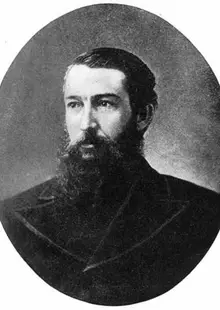
Sidney Lanier
Sidney Clopton Lanier was an American musician, poet and author. He served in the Confederate States Army as a private, worked on a blockade-running ship for which he was imprisoned, taught, worked at a hotel where he gave musical performances, was a church organist, and worked as a lawyer. As a poet he sometimes used dialects. Many of his poems are written in heightened, but often archaic, American English. He became a flautist and sold poems to publications. He eventually became a professor of literature at Johns Hopkins University in Baltimore, and is known for his adaptation of musical meter to poetry. Many schools, other structures and two lakes are named for him, and he became hailed in the South as the "poet of the Confederacy". A 1972 US postage stamp honored him as an "American poet".

Knightly Legends of Wales; or, The Boy's Mabinogion Being the Earliest Welsh Tales of King Arthur in the Famous Red Book of Hergest
Discover a world of legendary kings, valiant knights, and enchanting magic as ancient Welsh tales of bravery and honor come to life.
By Sidney Lanier

The Poems of Sidney Lanier
Experience the nature-infused verses of a 19th-century poet, a symphony of words reflecting his life, love for music, and innermost artistic yearning.
By Sidney Lanier

Bob: The Story of Our Mocking-bird
Rescued from the wild, a charming pet bird's artistic abilities and emotional depth cause a family to challenge views on freedom, creativity, and companionship.
By Sidney Lanier

The English Novel and the Principle of its Development
Explore the evolution of storytelling as a literary expert dissects how prose shapes society through narratives of virtue and vice.
By Sidney Lanier

Select Poems of Sidney Lanier
Explore the profound connection between nature, music, and life's trials in the verses of a gifted poet whose journey shaped his unforgettable words.
By Sidney Lanier

Poem Outlines
Unfinished verses offer a rare peek into an artist's mind as they grapple with nature, humanity, and the elusive spark of creation.
By Sidney Lanier
